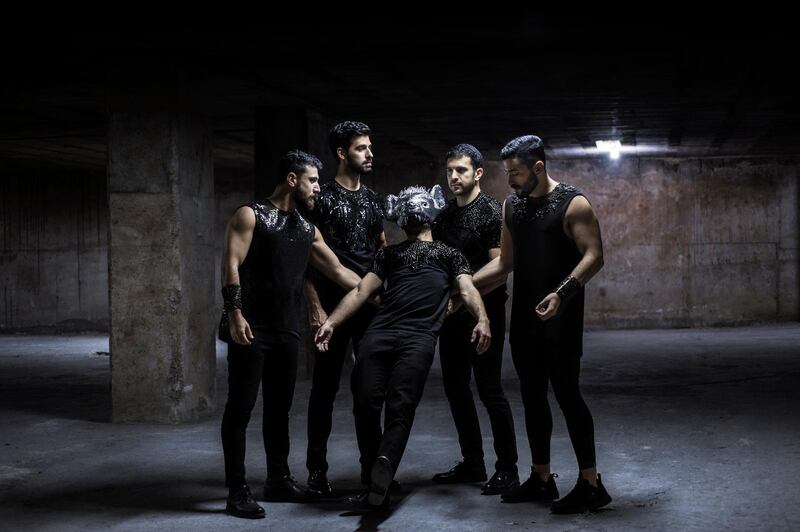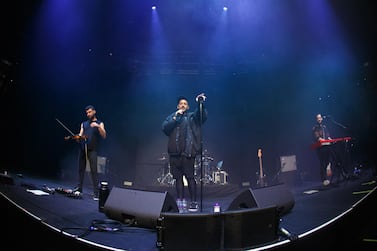Mashrou’ Leila’s latest album may be full of favourites and three new songs, but don’t call it a ‘greatest hits’ compilation.
Speaking to The National before their sold out performance at Morocco's Mawazine Festival yesterday, the band viewed their latest release, The Beirut School, as a way for the band to take stock since forming a decade ago at the American University of Beirut.
"It is still kind of surreal to me," says singer Hamed Sinno. "Because what makes the band work has always been us living in the moment. We were not trying to create some kind of deeper narrative and that's why we are still together because we always focused on what's at hand in the moment."
That sense of urgency applies to their latest single, Cavalry. It's another slice of their seductive electro-pop with lyrics as hard hitting as they are ambiguous.
On the surface level, not to mention the evocative music video Jessy Moussallem, Cavalry looks to be inspired by the Palestinian struggle under Israeli occupation. The video takes it cue from Ahed Tamimi, the Palestinian teenager arrested outside her home for confronting Israeli soldiers, as it shows a group of angry teenagers refusing to back down from armed troops.
Another interpretation could be that is about finding strength from facing the odds: “If I die a hundred times I will come back a hundred times as a polished sword.”
Sinno is happy to for the audience to draw their own conclusions, but he is clearly enamoured with the second version: "Cavalry is a song about showing up to a fight that you know you're going to lose, and going for it anyway."
The track could also mark their first direct inroad into the western market. After years of touring semi-regularly in North America and Europe, the band is now aiming to be more than a world music curiosity.
Last week, they released the English version of Cavalry with lyrics inspired by the original.
Multi-instrumentalist Carl Gerges said the rationale behind the switch in language was as much a creative impulse as a practical decision.
With the group gaining traction in the US market, the band wanted their fans to have at least one song to sing along to.
“We have been playing a lot in the States and it's important for us to have at least maybe one song where people can understand what's happening,” he says.
As for Sinno, after a decade of singing in Arabic, it took him a while to adjust his vocal style to suit the English language.
“I think in English, I grew up speaking English. It's my first language. So to try and regain that sensibility is a bit of a challenge,” he says. “We are not taking things so seriously. It's also just about allowing ourselves to challenge ourselves in the ways that we see fit, instead of what people expect, and for us this challenge is fascinating.”
Check out Arts and Culture soon for the full interview with Mashrou’ Leila







